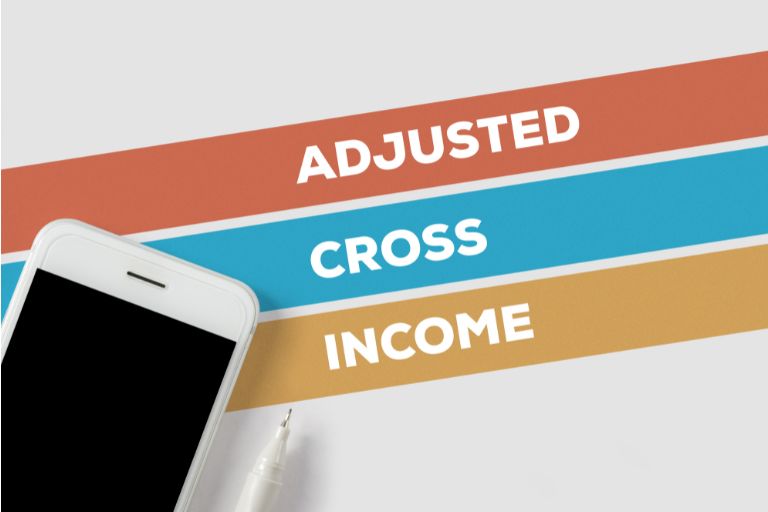Welcome, dear reader, to the rollercoaster ride of tax jargon that is ‘Adjusted Gross Income’. Buckle up, because we’re about to dive headfirst into the thrilling world of individual tax services. Yes, you heard it right! Thrilling! Who said taxes can’t be fun?
Now, you might be thinking, “Adjusted Gross Income? Sounds like something my accountant should worry about.” Well, dear reader, you’re not entirely wrong. But wouldn’t it be fun to show off your tax knowledge at the next dinner party? Imagine the look on your friends’ faces when you casually drop ‘AGI’ into the conversation. Priceless!
What on Earth is Adjusted Gross Income?
Adjusted Gross Income, or AGI as the cool kids call it, is not the name of a new indie band. It’s actually your total income for the year, minus certain deductions. Think of it as your income’s diet plan. It’s all about shedding those unnecessary pounds (or dollars, in this case).
Why does AGI matter, you ask? Well, it’s the magic number that determines your eligibility for certain tax benefits. It’s like the golden ticket to the Wonka factory of tax deductions. And who doesn’t want that?
The Ingredients of AGI
Just like a good recipe, your AGI is made up of several components. First, we have your total income. This includes everything from your salary to your lottery winnings. Yes, even that $5 scratch-off counts!
Next, we have your adjustments. These are the deductions that you can claim to reduce your total income. Think of them as the diet pills for your income. They help it slim down to its most attractive figure, the AGI.
The Role of AGI in Tax Calculation
Now, you might be thinking, “Why can’t we just use total income for tax calculations?” Well, dear reader, that’s a great question. The answer is simple: fairness. AGI ensures that people with similar financial situations pay similar amounts of tax. It’s like the Robin Hood of tax calculations, taking from the rich and giving to the poor.
AGI also plays a crucial role in determining your eligibility for certain tax credits and deductions. It’s like the bouncer at the club, deciding who gets in and who doesn’t. So, the lower your AGI, the more likely you are to get past the velvet rope.
How to Calculate Your AGI
Now that we’ve covered the basics, let’s move on to the fun part: calculating your AGI. Don’t worry, it’s not as hard as it sounds. In fact, it’s as easy as 1-2-3! Well, maybe not quite, but you get the idea.
First, you need to add up all your sources of income. This includes your salary, any bonuses, your lottery winnings, and even that $20 you found in your old jeans. Every penny counts!
Adjustments to Income
Next, you need to subtract your adjustments from your total income. These adjustments can include things like student loan interest, alimony payments, and contributions to certain retirement accounts. It’s like a shopping spree, but instead of buying clothes, you’re buying deductions!
Once you’ve subtracted your adjustments, you’re left with your AGI. Congratulations, you’ve just calculated your Adjusted Gross Income! Now, wasn’t that fun?
Common Adjustments to Income
Now, you might be wondering, “What kind of adjustments can I make to my income?” Well, dear reader, the list is long and varied. It includes things like educator expenses, student loan interest, and even moving expenses. It’s like a buffet of deductions, and you’re invited!
Remember, though, not all adjustments are created equal. Some are more beneficial than others, depending on your financial situation. So, it’s always a good idea to consult with a tax professional before making any major decisions. After all, you wouldn’t want to miss out on any potential savings, would you?
AGI and Your Tax Return
Now that you know how to calculate your AGI, let’s talk about how it affects your tax return. Your AGI is the starting point for calculating your taxable income. It’s like the first step on your journey to tax enlightenment.

Once you have your AGI, you can subtract your standard or itemized deductions to get your taxable income. This is the amount of income that the IRS actually taxes. So, the lower your AGI, the lower your taxable income, and the less tax you have to pay. It’s a win-win situation!
AGI and Tax Credits
But wait, there’s more! Your AGI also affects your eligibility for certain tax credits. These are like the cherry on top of your tax return. They can significantly reduce the amount of tax you owe, and in some cases, even result in a refund.
Some of these credits include the Earned Income Tax Credit, the Child Tax Credit, and the American Opportunity Credit. But remember, just like with adjustments, not all credits are created equal. So, it’s always a good idea to consult with a tax professional to make sure you’re getting the most out of your tax return.
Conclusion
Well, dear reader, we’ve reached the end of our journey through the thrilling world of Adjusted Gross Income. We’ve laughed, we’ve cried, and we’ve learned a lot about taxes. Who knew they could be so fun?
Remember, your AGI is more than just a number. It’s a key component of your tax return, and it can have a big impact on your financial situation. So, treat it with the respect it deserves. After all, it’s not every day that you get to calculate your own AGI!


